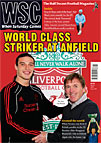 Ian Plenderleith approves of the attempts to throw off the shackles of British footballing attitudes in North America
Ian Plenderleith approves of the attempts to throw off the shackles of British footballing attitudes in North America
A panel of US football journalists arrived at the national coaching convention in Baltimore at the start of this year for a general discussion about media coverage in the States. In the time allowed, however, there was only one topic that interested the few dozen present – the importation of British television commentators, and how it reflects on the state of the US game.
When the Colorado Rapids edged FC Dallas 2-1 last November to win the Major League Soccer Cup final, it wasn’t just the poor play, the dearth of atmosphere and the freezing temperatures for a 9pm Sunday kick-off in Toronto that enraged fans. Many were baffled too that broadcaster ESPN had insisted on flying in Ian Darke and Steve McManaman to cover the final game of the US domestic season.
The duo duly exposed their ignorance of the teams and the league with a number of risible gaffs, while giving the impression they were no happier to be freezing their nuts off in Canada than we were to hear McManaman call on his years of playing experience to advise the finalists “to try your best and leave it on the field”.
Too much respect for The Accent is a sensitive issue as the US game continues its arduous struggle to establish credibility both at home and abroad. ESPN’s first wave of non-US commentators were shipped out to South Africa last summer, and Efan Ekoku swiftly demonstrated the required levels of expertise by failing to understand the basics of the offside law in the opening game, erroneously insisting the officials had wrongly cancelled out a Mexican goal. The feeling was: Hey, we have guys who can commentate as badly as that too.
It’s not that US fans are fundamentalist patriots who insist on home boys for every match – most in fact prefer to hear British accents commentate English or Champions League games. But for World Cup games, in particular those involving the US, a home voice was deemed appropriate for domestic TV. After all, when a historic moment such as Landon Donovan’s last-minute winner against Algeria occurs, it needs to be accompanied by the hysterical excitement of someone who actually wanted that ball to go in. Imagine if a disinterested Swede had been at the mic when Norway beat England in 1981, or if Kenneth Wolstenholme’s clipped tones and perfectly timed closing line to the 1966 World Cup final had been delivered by a possibly envious Scot.
The sensibilities of fans aside (not to mention those of the home-based commentators who didn’t get the gig), ESPN’s presumption that a British accent translates into more knowledge and, somehow, more authenticity, touches on an old dilemma for US football. Namely, how do they shake off the borrowed style and an inherent inferiority complex borne of an excess of immigrant British coaches and players over the past half century?
For while a diminishing portion of people in the lower reaches of the game are still impressed by The Accent, presupposed to magically bear over a century of football consciousness, most are concerned with moving on to forge an independent identity for North American football.
The influence of British coaches still blights the US game at all levels. They are not necessarily bad, but they have always come to make a living in a highly competitive field where results count above all else. Their coaching may be effective, but the football they cultivate is unimaginative, and aimed at landing trophies and honours (and thus wages), rather than nurturing good players. This approach afflicts native coaches who grew up in the same environment, and it means that from youth clubs, through college football, to MLS and the national team, the quality of play suffers and the emergence of prodigiously gifted individuals, who might win the game more fans and propel the national team to a higher level, remains an outside possibility.
Still, there are serious efforts afoot to remedy the universally prosaic nature of US football. The US Soccer Federation is finally looking to the country’s massive (and hitherto largely ignored) Hispanic population to secure both players and coaches with a more progressive technical philosophy. And MLS is stepping up its reliance on the burgeoning, and now statutory, youth academies within its own teams to recruit younger players, rather than relying on the unremarkable crop of men in their 20s churned out every year by the moribund college system
ESPN’s use of imported commentators symbolises a slap in the face to the innovators who realise the US must finally liberate itself of British influence and forge its own way forward. It’s a gradual transition, and it may take a few more generations of players, coaches and administrators before there’s a noticeable effect on the field of play. But an end to the unhealthy alliance with the former colonial masters is as inevitable as the US holding on for a good while yet to its superior World Cup record when matched directly against the once-revered footballing motherland.
From WSC 289 March 2011